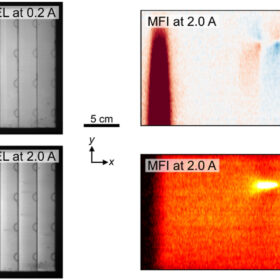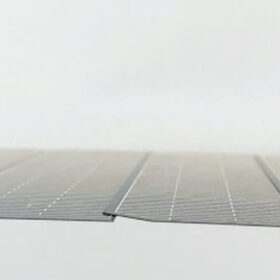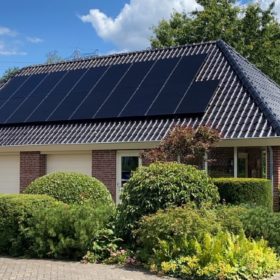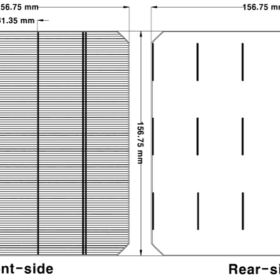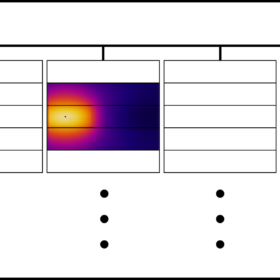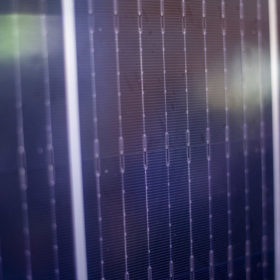Edge passivation improves shingled solar module performance
A group of scientists from the Germany’s Fraunhofer ISE has proposed a new metric to assess the performance of shingled solar panels. They also applied the so-called passivated edge technology (PET) to experimental shingled modules and found it can increase their pseudo fill factor without compromising their inteconnection quality.
First attempt to build ‘shingled’ perovskite-silicon tandem solar cells
Fraunhofer ISE researchers have demonstrated for the first time the feasibility of the shingling approach with perovskite-silicon tandem solar cells. They also produced full format photovoltaic modules with a power conversion effciency of 22.8%.
Tongwei unveils 21.7%-efficient shingled solar panels for residential PV
Tongwei is offering six versions of its monofacial monocrystalline panels, with power outputs ranging from 400 W to 430 W and power conversion efficiencies between 20.1% and 21.7%.
Novel busbar-free cell design for shingled solar modules
South Korean scientists have fabricated a busbar-free solar cell for shingled modules that uses 60% less silver than its busbar counterparts. A module with the new cells had almost the same performance as a reference shingled panel built with a conventional cell design.
Novel design for shingled solar modules
Researchers in Singapore have created a flexible framework for designing hotspot-resistant shingled modules. Their work is claimed to be perfectly compatible with existing manufacturing techniques.
A new front electrode structure for shingled PV panels
Researchers in Korea have proposed a new design for dividing and bonding which is said to provide higher efficiency from fewer fingers. The number of fingers optimized for division into five cells was 128 and for three, 171. Five offer power conversion efficiency of 17.346% and three 16.855%.
